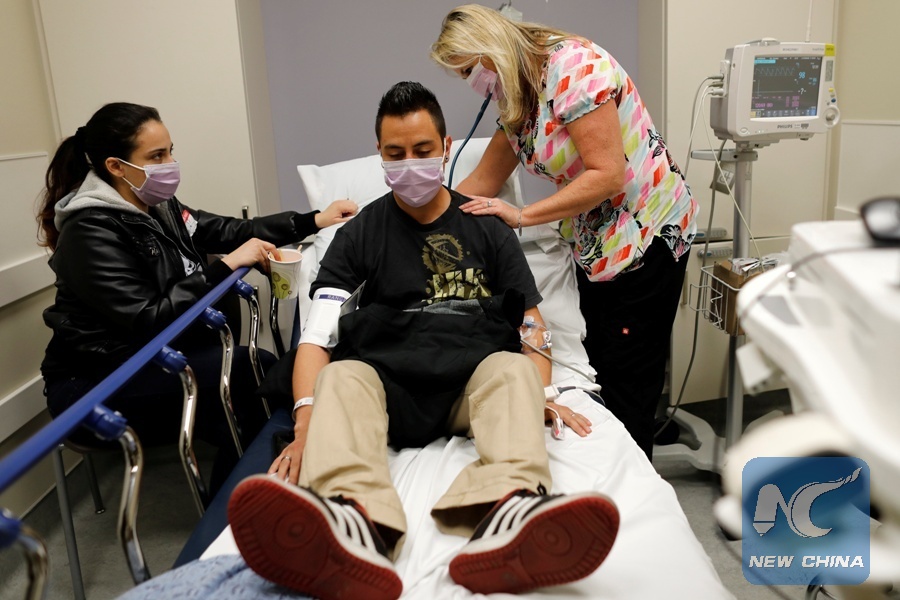
Emergency room nurse Christine Bauer treats Joshua Lagade of Vista, California, for the flu as his girlfriend Mayra Mora looks on in the emergency room at Palomar Medical Center in Escondido, California, the United States, on Jan. 18, 2018. (Xinhus/ REUTERS)
SAN FRANCISCO, Jan. 19 (Xinhua) -- Californian health authorities said Friday that flu fatalities among Californians under 65 this year has risen to a record 74, which highlighted a serious epidemic that U.S. scientists say could easily be spread by simply breathing.
Researchers with university of California at Berkely (UC Berkeley) and San Jose State University detailed their findings about the alarming easy way of flu spreading by breathing in a paper of their study, which were carried in the journal Proceedings of the National Academy of Science Thursday.
The research shows that some people can exhale or cough high quantities of live virus particles -- up to 1,000 in 30 minutes, said Jovan Pantelic, who was part of the research team on the 10-million-U.S.-dollar study on transmission of the flu.
"When we consider that an infectious dose is just one virus particle, this means that potentially 1,000 people can be infected in short order," he said.
This is especially true in buildings where people sit close to each other or on a public transportation system, where there is a high density of people with the absence of fresh air, he said.
This year, a strong flu strain called H3N2 is dominant and already spreading to all U.S. states except for Hawaii, UC Berkeley said in a statement.
Researchers said it may not be enough for the public to just wash hands or cover up their mouths when coughing or sneezing.
John Swartzberg, a professor with UC Berkeley's School of Public Health, said talking, just like coughing and sneezing, can easily spread the flu virus.
He recommended the public to stay at least six feet (about 1.8 meters) away from anyone with influenza, "not just those who are sneezing and coughing, but anyone talking!"
The study was funded by the U.S. Centers for Disease Control and Prevention and the National Institutes of Health, the primary agency of the U.S. government responsible for biomedical and public health research.

